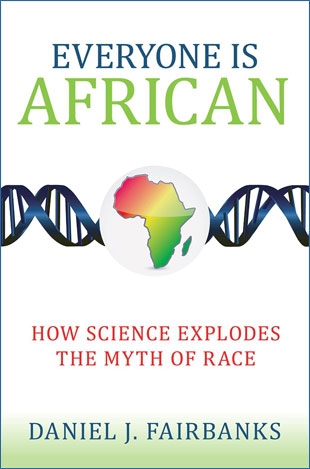"Unfortunately, many people find it difficult to accept what current science tells us about the myth of race. It runs counter to what seem to be obvious racial distinctions, mostly in parts of the world where immigration history has juxtaposed people with discontinuous ancestral backgrounds in the same place. The racial categorizations that many of us have experienced throughout our lives have likewise inculcated a sense of racial division that is not easy to abandon. Regardless of what the scientific evidence shows, the perception of race and the associated racial discrimination are unlikely to disappear anytime soon. Furthermore, a scientific understanding of human evolutionary history challenges commonly held religious beliefs that are based on literal interpretations of biblical history. Everything we have discussed in this book, and everything related to human genetic diversity, is a consequence of our evolutionary history, supported by abundant evidence. Just as geneticist Theodosius Dobzhansky famously affirmed that 'nothing in biology makes sense except in the light of evolution,' nothing we know about human genetic diversity makes sense except in the light of human evolution. Yet a significant minority of people (42 percent in the United States, according to the most recent Gallup poll) fully reject human evolution, opting instead for the belief that humans were specially created with no prior evolutionary ancestry less than ten thousand years ago. Such beliefs are often infused with a nonscientific perception of different races and how they supposedly originated. And, in spite of overwhelming scientific evidence and changing social norms, a relatively large proportion of people still cling to past traditions of white supremacy and racism.
"To understand who we are as a species, and why we vary as we do, we must examine our genetic diversity in the context of a common African origin, followed by intra- and intercontinental diasporas that transpired over a period of tens of thousands of years, culminating in an era of major migrations that reshuffled the worldwide human genetic constitution over the past several thousand years and is still underway. Last, we must recognize that today's human population is far larger, more diverse, and more complex than it ever has been. We are all related, more than seven billion of us, distant cousins to one another, and, ultimately, everyone is African."
